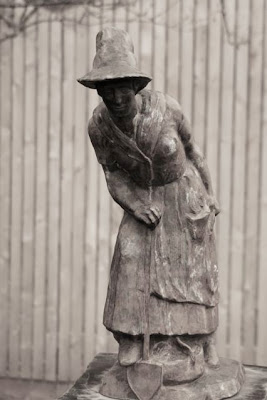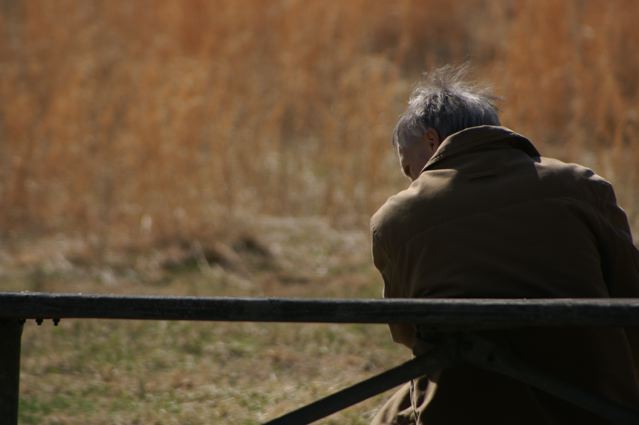new posts in all blogs
Viewing: Blog Posts Tagged with: English 135-302, Most Recent at Top [Help]
Results 1 - 13 of 13
How to use this Page
You are viewing the most recent posts tagged with the words: English 135-302 in the JacketFlap blog reader. What is a tag? Think of a tag as a keyword or category label. Tags can both help you find posts on JacketFlap.com as well as provide an easy way for you to "remember" and classify posts for later recall. Try adding a tag yourself by clicking "Add a tag" below a post's header. Scroll down through the list of Recent Posts in the left column and click on a post title that sounds interesting. You can view all posts from a specific blog by clicking the Blog name in the right column, or you can click a 'More Posts from this Blog' link in any individual post.
Last evening, following a full afternoon of extraordinary conversations with my students, I missed the 5:38 PM train by, well—let's just say I got there right as the doors were closing.
All, however, was not lost, for there's always Faber books at 30th Street Station—always the chance to acquire something new.
I had thirty minutes. I bought, at last, Kevin Powers'
The Yellow Birds. It's the book of the year here in Philadelphia, and it's about time that I get with the program. I'll read it. Soon.
But I also bought a copy of
Vaclav and Lena, a debut novel by Haley Tanner. It is one of those books I'd always been meaning to buy, then forgot I'd wanted to buy, then had forgotten altogether as I pursued the next new many things. If I hadn't missed the train, I'd have not met these two immigrant Brooklyn children who want, when we first meet them, to be the best magicians alive.
I'm not finished reading yet, so I can't deliver a full report. I can, however, give you this fragment of the first single wow opening sentence, which I share in honor of one of my students who has captivated us with her voice this year, and who could, I have not a single doubt, cast an instant spell like this one:
"Here I practice, and you practice. Ahem. AH-em. I am Vaclav the Magnificent, with birthday on the sixth of May, the famous day for the generations to celebrate and rejoice, a day in the future years eclipsing Christmas and Hanukkah and Ramadan and all pagan festivals, born in a land far, far, far, far, far, far, far distance from here, a land of ancient and magnificent secrets, a land of enchanted knowledge passed down from the ages and from the ancients, a land of illusion (Russia!), born there in Russia and reappearing here, in America, in New York, in Brooklyn (which is a borough), near Coney Island, which is a famous place of magic in the great land of opportunity (which is, of course, America!), where anyone can become anything, where a hobo today is tomorrow a businessman in a three-piece-suit, and a businessman yesterday is later this afternoon a hobo, Vaclav the Magnificent, who shall, without a doubt, be ask to perform his mighty feats of enchantment for dukes and presidents and czars and ayatollahs, uniting them all in awestruck and dumbstruck, and.....
You get the point? The books we pay attention to are the ones that leap from the page.
Vaclav and Lena leaps from mile-long sentence number one.
Voice. Some people have it.
You know who I'm talking about.
I do go on about those University of Pennsylvania students I have the privilege to teach, but why shouldn't I? They are brave and beautiful and bold and lovable, and they have talent coming out of their ears.
I'm not typically able to show you that talent, but today I can. That's because Mr. Joe Polin, an engineer (mind you!) who was enrolled in my class last semester, has just published this beautiful piece, his last work in our class, in the magnificent Pennsylvania Gazette.
It's called "Off the Rails." It's about Joe's Cuban grandfather. It starts like this, below, and to read the whole, simply click on this link here: Santiago de Cuba, 1933:
The doctor examined the newborn twins, his forehead wrinkled with concern. He bent over the nearer one to listen to his breathing.
“Are they okay? Are they healthy?” the father asked.
The doctor finally straightened up, meeting the father’s gaze. After a moment of consideration, he said, “Give this one your name, he is perfectly healthy. This one”—he pointed to the smaller of the two twins—“isn’t going to make it. He’s too weak to survive.”
I miss those students as fall gets underway, but in the spring I will be back. If I see Joe Polin while he's rambling down Locust Walk some Tuesday, I'm going to give him a hug, whether he likes it or not. For that matter, if I see any of those students .....
Thank you, editor John Prendergast.
Among the many extraordinary young people in my most recent class at the University of Pennsylvania was a freshman from South Korea with a philosopher's soul. K went at projects in his own fashion and earned our lasting respect for the ways in which he'd quietly, politely defend his literary outposts. He moved fearlessly outside the confines of form and foundation to suggest a new approach, at one point earning J's highest encomium, "That took balls, man." K was unafraid of dreaming out loud, unafraid of hoping, unafraid of expressing his deep, abiding affection for his mother. K wrote not of disdain and fractures, but of love and sacrifice, of the "whistle of the wind through the open window." That open window was in our own classroom. He wrote movingly, too, of its walls, its soul.
What had shaped this young man? I often wondered, and when I read of Kyung-sook Shin's
Please Look After Mom, I knew I had to read it—had to see South Korea through the eyes of one of its most famous working novelists.
Mom is the story of lostness—of a South Korean woman who is somehow not right there, with her husband, when the train they are to ride together pulls out of the Seoul Station. The woman had been beset by blinding headaches and some amnesia. She was getting on in age. She had, to be honest, been largely taken for granted. But now Park So-nyo is gone, and desperation sets in as her husband and adult children set out to find her.
We learn the story through the voices of Park's novelist daughter, her eldest son, her husband, and a younger daughter (before hearing, finally, from Park herself). We understand, throughout all the pained and poignant remembering and reassessing, that it is not just that Park's family doesn't know where she is and cannot find her. It's that they may never really have known her at all.
This simply-told story embodies haunting, complex truths. It yields a devastating but gorgeous portrait of South Korea. It reminds us that mothers were children once, mothers have dreams, mothers are wrecked and salvaged by their secrets. This is a book that I didn't want to part with. It's a book that I will read again.
I quote from this letter tucked inside the book, written by the younger daughter. I choose this passage because it is Mother's Day and, while I am not
this daughter, I was
a daughter. I honor today those things that I will never know fully about my own mom, those things she dreamed and wanted.
I know one thing. I can't do it like she did. Even if I wanted to. When I'm feeding my kids, I often feel annoyed, burdened, as if they're holding on to my ankles. I love my kids, and I am moved—wondering, did I really give birth to them? But I can't give them my entire life like Mom did. Depending on the situation, I act as if I would give them my eyes if they need them, but I'm not Mom.... She didn't have the opportunity to pursue her dreams and, all by herself, faced everything the era dealt her, poverty and sadness, and she couldn't do anything about her life other than suffer through it and get beyond it and live her life to the very best of her ability, giving her body and her heart to it completely. Why did I never give a thought to Mom's dreams?
This is not my yard. This is the perfect lawn of Chanticleer Gardens, where two of my books take place and many of my other books have been considered. This is the lawn children tumble down, the lawn my own Chanticleer students once traversed as they made their way from prose poems to villanelles.
This is also not my life—this quiet, green perfection. My life is more like last night—those 45 minutes of sleep that I finally got—or more like this morning, when, after deciding that further sleep was not an option, I turned on my computer only to experience a three-hour computer crash. My email files have now been restored, thank you very much. But it's 11:20 AM, and I have not dressed for the day.
What I have done, while wading through no sleep and no connectivity is to read and blurb a book, to talk to my father, and to read Jonathan Franzen's essay, "Farther Away," in last week's
The New Yorker. This is the piece my dear student brought to me on Tuesday. This is the quality of work she finds inspiring. And no wonder. I share with you now the passage my student read aloud to me, on that gray day, in that dark and too-cold room, her voice the warmth, her presence the light. It's Franzen reflecting on David Foster Wallace:
People who had never read his fiction, or had never even heard of him, read his Kenyon College commencement address in the Wall Street Journal and mourned the loss of a great and gentle soul. A literary establishment that had never so much as short-listed one of his books for a national prize now united to declare him a lost national treasure. Of course, he was a national treasure, and, being a writer, he didn't "belong" to his readers any less than to me. But if you happened to know that his actual character was more complex and dubious than he was getting credit for, and if you also knew that he was more lovable—funnier, sillier, needier, more poignantly at war with his demons, more lost, more childishly transparent in his lies and inconsistencies—than the benignant and morally clairvoyant artist/saint that had been made of him, it was still hard not to feel wounded by the part of him that had chosen the adulation of strangers over the love of people closest to him.
What we learn from our students. What they yield.
What, we wondered, enables us to see, forces us to pay attention, yields the startling, essential, cracked-open image?
I return, I said, to the camera's eye. I practice seeing by training the lens on the interior of an object, the corner of a room, the splaying of light, the hurried-up something. I take, for example, a macro lens to the intimate heart of a tulip, where beauty is architecture and dust.
Thank you, Mario, for the flowers.
Having spent this morning grading student memoirs, I am in possession of invincible proof.

By:
Beth Kephart ,
on 3/22/2011
Blog:
Beth Kephart Books
(
Login to Add to MyJacketFlap)
JacketFlap tags:
Lynn Hirschberg,
CK Williams,
Elif Batuman,
Lee Daniels,
Oliver Sacks,
English 135-302,
Geoffrey Wolff,
literary profile,
Frederick Busch,
Add a tag
Today in class, following our review of four student memoirs, we'll look ahead toward the literary profiles that the students will be writing as their final project. My instructions for the assignment are, as usual, simple enough (I include them below). Not quite as simple is shaping, with the students, standards of excellence, or measures against which such profiles might be judged. I loved, for example, Patti Smith's profile of Johnny Depp in a late 2010 issue of
Vanity Fair precisely because of the rugged, empathetic nature of her questions; Smith knows fame, she knows yearning, she knows loss, and she knows Depp, and by going beyond what she already knew (by asking the piercing personal and philosophical questions) she gave us an indelible, original portrait.
In Misgivings: My Mother, My Father, Myself, the poet C.K. Williams brings psychological acuity and a poet's ability to parse to his intimate renderings of those who shaped his world. We know Williams's mother, for example, by what he tells us she withholds, and why. "When my father was undergoing his illnesses, his absentmindedness, his depressions, (my mother) somehow managed never quite to submit to them: although she sympathized with him, wished he were better, was, you could tell, a little offended without ever saying so by his not being better, she still never manifested what was happening as something that really possessed her; she always kept back that corner of her feelings that might have made her suffer too much."
In her introduction to
The Possessed, Elif Batuman yields a portrait of the "first Russian person I ever met" that (by choosing just the right scenes, the right snips of dialogue, the dead-on, tell-tale italics) gives us an immediate sense not just of a man's infuriating but perhaps endearing idiosyncratic tics, but of the effect those tics had on Batuman herself. "Toward the end of one (violin) lesson, for example, he told me that he had to leave ten minutes early—and then proceeded to spend
the entire ten minutes unraveling the tortuous logic of how his early departure wasn't actually depriving me of any violin instruction. 'Tell me, Elif,' he shouted, having worked himself up to an amazing degree. 'When you buy a dress, do you buy the dress that is most beautiful...or the dress that is made with the most cloth?'"
Oliver Sacks, especially in
The Man Who Mistook His Wife for a Hat, makes effective use of clinical language and telling dialogue to bring his real-life characters to the page. Frederick Busch uses a novelist's touch—vivid, unexpected details, the lean of impression against the stacking of facts—to invigorate portraits of people like his father and Terrence des Pres. In
The Duke of Deception, Geoffrey Wolff juxtaposes known facts against purported ones to give us a man, his own father, who sought to deceive all on every topic save for the power and importance of love.
I'm going to be reading segments from those books to the students today. Additionally, I've asked them to read, on their own, Lynn Hirschberg's
New York Times Magazine profile of Lee Daniels, the so-smart, so-sensational, and (to use her word) audacious director/part producer of the Oscar-winning film "Precious" (among other things). The students have downloaded t
he Hirschberg story (in these waning days of being able to download NYT files, though, hey, I am a paper subscriber and will still have privileges) and, I hope, they've played the video o
Yesterday, before class, I sought a place to pray for all the heartbreak that is Japan. I walked to a garden beyond the veil of steam that gushes through the old medical school grates. I walked the alley between the new vet buildings. I keep walking west and south up to 42nd Street, until I found myself here, at Woodlands. Once the home (purchased in 1735) of Andrew Hamilton, the estate was ultimately willed to Hamilton's grandson William, a botanist and architectural enthusiast who built his grand mansion on the far edge of the grounds overlooking the Schuylkill River.
In time, part of the Woodlands estate became home to the University of Pennsylvania. Part became a cemetery, and today that cemetery, with its original home and stables, sits on the National Historic Landmark list. Thomas Eakins, the painter, is buried there. So is Silas Weir Mitchell, the physician-writer, and William Rush, the sculptor, and Rembrandt Peale, the artist, and Jessie Willcox Smith, the illustrator, and Paul Philippe Cret and Wilson Eyre, both architects. The man who founded Campbell Soup is here. So is Anthony Drexel, who, among other things, funded Drexel University and helped create America's first true suburban community, Wayne. And once the body of George W. Childs, a quiet hero in two of my books, lay in the Drexel family vault at Woodland, his goodness permeating.
But I was the sole living soul on this gray day. I went deep, to the edge, to the western reach of the river. By the time I returned to campus my students were gathering for what would be a most intense, most extraordinary conversation. My job, I keep reminding them, reminding me, is to push them each as far as they can go. Because sometimes love looks like
do not change a word. And sometimes it looks like,
frame it newly, reimagine the tone. Hope is there, inside both conversations. Faith that these young writers are going far.
I never do teach the same thing twice, but that doesn't mean I forsake the classics in favor of novelty. The one, single essay that I have carried forward into every memoir class is Patricia Hampl's "Memory and Imagination," found within
I Could Tell You Stories. You just don't teach memoir without it, or at least I don't. These words, then, for today, from Hampl, as I head out into more snow (there's always snow, it seems, on teaching Tuesdays), for the University of Pennsylvania campus.
We seek a means of exchange, a language which will renew these ancient concerns and make them wholly, pulsingly ours. Instinctively, we go to our store of private associations for our authority to speak of these weighty issues. We find, in our details and broken, obscured images, the language of symbol. Here memory impulsively reaches out and embraces imagination. That is the resort to invention. It isn't a lie, but an act of necessity, as the innate urge to locate truth always is.
Among the returning motifs in our memoir class is the idea of beauty in language—rhythm, pattern, song. It's not easily classifiable stuff. We come toward it each with our own idiosyncratic preferences, our mysterious politics. Name your beauty, and I shall name mine. Instruct me and I will teach you; I will show you what I mean; I will hearken and hold.
Toward the final pages of E.M. Forster's
Aspects of the Novel, a series of lectures delivered in 1927, the great novelist says this:
Music, though it does not employ human beings, though it is governed by intricate laws, nevertheless does offer in its final expression a type of beauty which fiction might achieve in its own way. Expansion. That is the idea the novelist must cling to. Not completion. Not rounding off but opening out. When the symphony is over we feel that the notes and tunes composing it have been liberated, they have found in the rhythm of the whole their individual freedom. Cannot the novel be like that?
Forster writes of the novel, and I teach memoir, but there are lessons here, of course, just as there are lessons on every page we read. We are honing our idea of good. We are turning away from that which flattens our curiosity, our desire to know.
This morning I was looking at the first pages of two award-winning debut young adult novels. One teased and seduced me; it opened a world. The varied shape and length of its sentences installed, within me, a mood, while its repeated words and sounds felt considered, not convenient. The other opening page crunched as I read it; it stuttered. Through a series of noun-verb, noun-verb declarations, it directed me to know and did not give me room to feel. Both books, as I have noted, gained the adoration of judging panels. Both have been widely read. I wonder how these two examples work upon you? Which is the book you'd like to read? Which is the one you feel you'd learn from?
Example 1: By 1899, we had learned to tame the darkness but not the Texas heat. We arose in the dark, hours before sunrise, when there was barely a smudge of indigo along the eastern sky and the rest of the horizon was still pure pitch. We lit our kerosene lamps and carried them before us in the dark like our own tiny waving suns. There was a full day's work to be done before noon, when the deadly heat drove everyone back into our big shuttered house and we lay in the dim high-ceilinged rooms like sweating victims. Mother's usual summer remedy of sprinkling the sheets with refreshing cologne lasted only a minute. At three o'clock in the afternoon, when it was time to get up again, the temperature was still killing.
Example 2: Nailer clambered through a service duct, tugging at copper wire and yanking it free. Ancient asbestos fibers and mouse grit puffed up around him as the wire tore loose. He scrambled deeper into the duct, jerking more wire from its aluminum staples. The staples pinged about the cramped metal passage like coins offered to the Scavenge God, and Nailer felt after them eagerly, hunting for their dull gleam and collecting them in a leather bag he kept at his waist. He yanked again at the wiring. A meter's worth of precious copper tore loose in his hands and dust clouds enveloped him.
As the sun tries to rise on Philadelphia today, I pack my bags for the University of Pennsylvania, English 135, where Vivian Gornick's most essential
The Situation and The Story: The Art of Personal Narrative will be our partial guide. It is my guide, as well. From the final pages:
Any attempt to teach writing ... out of anything other than that which the teacher knows intimately rather than theoretically is also doomed. Theories of creative writing I find even more damaging than questions of craft. It seems to me that as teachers of writing, we are there only to make the widest and most thoughtful sense of our own experience. Out of that alone comes useful exploration.
My only thought yesterday was of the beguiling, deceptive charm of writing and music.
— Norma Herr, as quoted by her daughter Mira Bartok, in the remarkable memoir
The Memory Palace, about which you will soon be reading more here. For now, I hurry to the Penn campus, to share these words and others with my students
but since it's not the beach I'll be walking tomorrow, I will find happiness instead on the University of Pennsylvania campus, where my students and I will be talking about Joan Didion's essay, "On Keeping a Notebook," and taking a stroll with our cameras. Maybe one or the other of us will catch the sun. Maybe we'll fall in love with a detail. Maybe something we see will bring us back to ourselves. It's all worth hoping for.
















Joe's piece was amazing - well-written, well-paced, and extremely touching. He must have had a good teacher. :)
Thanks for sharing!
Congratulations to you student, who is so lucky to have had you for a teacher!
:-) A,
Read it. Loved it. Very well done.